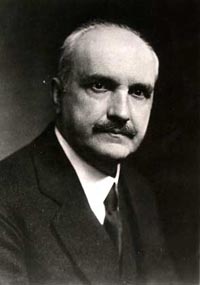
A participant in Yahoo!Answers asks:
"Who is the best atheist philosopher? Out of Bertrand Russell, Nietzsche, Richard Dawkins, Sam Harris, Christopher Hitchens, Democritus, etc. who is the greatest/best atheist philosopher of all time?"
I answered thus:
-----------------------------------------------
Since you've said "etc." I guess we can move beyond your list.
I have to answer: George Santayana.
A word of bias acknowledged: I'm a Jamesian pragmatist in philosophy myself, and I find reasonable an act of "will to believe" in a God whose existence I can not prove, as part of my effort to lead a productive and satisfying life on earth.
But you didn't ask for best fideist. You asked for best atheist. And Santayana, who was something of a protégé of James, became that. He combined Plato in matters of value with Democritus in matters of existence, a fascinating combination.
Here's a quote: "Now I was aware, at first instinctively and soon quite clearly on historical and psychological grounds, that religion, and all philosophy of that kind was invented. It was all conceived and worked out inwardly, imaginatively, for moral reasons; I could have invented or helped to invent it myself, if I had gone in for it; and I could have accepted it and enlarged it by my own insights if, like all original souls, I had fancied myself inspired."
I have to answer: George Santayana.
A word of bias acknowledged: I'm a Jamesian pragmatist in philosophy myself, and I find reasonable an act of "will to believe" in a God whose existence I can not prove, as part of my effort to lead a productive and satisfying life on earth.
But you didn't ask for best fideist. You asked for best atheist. And Santayana, who was something of a protégé of James, became that. He combined Plato in matters of value with Democritus in matters of existence, a fascinating combination.
Here's a quote: "Now I was aware, at first instinctively and soon quite clearly on historical and psychological grounds, that religion, and all philosophy of that kind was invented. It was all conceived and worked out inwardly, imaginatively, for moral reasons; I could have invented or helped to invent it myself, if I had gone in for it; and I could have accepted it and enlarged it by my own insights if, like all original souls, I had fancied myself inspired."
Comments
Post a Comment